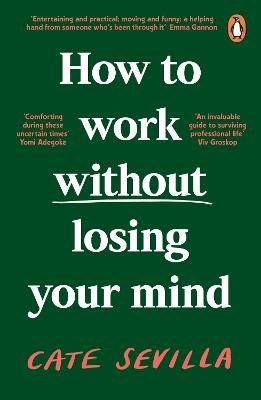I’m Too Shy In Interviews & It’s Costing Me Jobs
Illustrated by Joonho Ko.
There's a lot to contend with when you're climbing the career ladder these days. No longer is it a case of head down, work hard and move up (as if it ever was). These days, the path to success is decidedly more zigzagged and it's a murky world out there. There's the trivial: being expected to use language like "pivot" and "triangulate" and the network-y after-work socials (no, Kevin, I don't want another drink). And there's the much more serious: think sexual harassment, implicit bias and outright discrimination. Even the type of place we work has changed; from startups with no HR department to striking out on your own as a freelancer, we aren't always blessed with the (relatively) safe net that full-time employment should provide. Chuck the past few years into the mix and it's a wonder we're keeping on keeping on.
AdvertisementADVERTISEMENT
Which is why a little bit of help feels like it's due. Luckily, Cate Sevilla, editor-in-chief of HuffPost UK and author of How To Work Without Losing Your Mind, has come to the rescue. From surviving the manager from hell to avoiding burnout and learning to ditch comparison culture, her book is your manual for navigating the confusing modern world of work. And here, Cate is going to be answering your questions on how to deal with specific work issues.
Today's question: How do you combat nerves and keep calm during a job interview?
"I feel like I’m ready to move up a level in my career. Luckily, my industry is still hiring so I’ve been looking around and I’ve found a fair few roles I think I’m qualified for. The problem is how nervous I get in interviews. I am a super shy person and luckily I’m not in a people-facing role so interviews are really the only time at work that my shyness is an issue. I’ve had a few interviews in the past where I know I have blown it because I just can’t seem to present myself in the way I want to — my palms sweat, I stumble over words, it’s honestly a total nightmare. What can I do to make sure I don’t sell myself short? I’m a nightmare on Zoom too btw (of course)."
Cate says: Firstly, that’s wonderful news that your job hasn’t been affected by the pandemic and that you have the flexibility to look for new roles. As for your shyness "problem" — you use some pretty harsh phrases and words around this and yourself. You say that you’ve "blown it" in interviews and describe yourself as a "total nightmare" — twice! Being shy and introverted is not a negative thing but what I’m hearing is that it’s more the anxiety and nervousness in interviews that’s the problem, not your personality. It’s okay to not be a huge "people person" or extrovert; offices and companies need all types of personalities, "shyness" included.
AdvertisementADVERTISEMENT
When it comes to interviews, I would start exploring what’s at the core of your nervousness — are you afraid they’re going to ask you something you don’t know or try to catch you out? Is there some imposter syndrome going on? What is the main worry? This is something you can work through on your own by journalling or by talking with a friend or even a therapist or career coach if you have access to one. (I appreciate that many do not!) Depending on what you discover, my advice would be to work on reframing how you think about the dynamics of a job interview. If you go into an interview feeling that you’re small and they’re big and that your main focus is to try to desperately convince them of your brilliance, that would make anyone feel super nervous, anxious and under a lot of pressure.
Instead of approaching an interview like you’re a contestant auditioning for The Voice, you have to remember that interviews are two-way interactions. As much as they’re trying to assess if you’re a good fit for the role, you should be trying to ascertain if this company, the hiring manager and the role itself are good fits for you. You’re also interviewing them, even if the process is set up to feel like you’re the one in the hot seat.
You’ll also need to figure out what is most important to you in your next role and company. For example, is it a salary increase you’re mainly after? Or is it career progression and development, or perhaps acquiring certain skills? Once you know, approach these conversations (and interviews should be conversations, not interrogations) with questions based on assessing if what’s important to you in your next job actually aligns with this role — whether it’s queries about succession planning, flexible working or the company’s approach to mental health. If the hiring manager or person interviewing you is weary, vague or even defensive around answering these specific questions, this is also something to pay attention to. Listen to your gut — are you sensing a red flag?
AdvertisementADVERTISEMENT
Understanding what’s causing your nervousness and anxiety around interviews, rather than just dismissing yourself as a shy nightmare is a really good place to start. And knowing what you want out of a role and approaching interviews as two-way conversations will hopefully take things to the next level for you. Best of luck with the job search!
This article was originally published in January 2021 and has since been updated.
AdvertisementADVERTISEMENT







